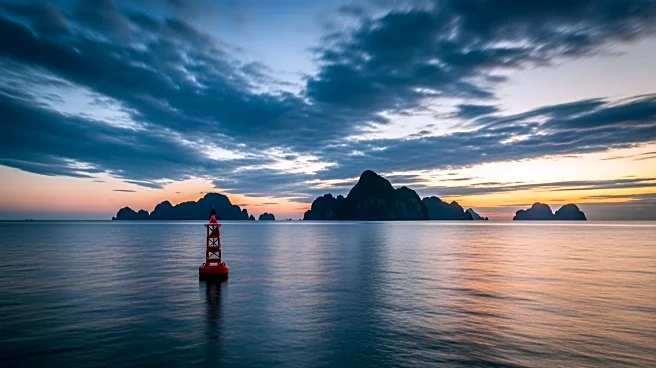What's Happening?
Russia has reportedly banned foreign ships from exercising the right of innocent passage in waters surrounding the disputed Kuril Islands, claimed by Japan. This decision has prompted Tokyo to lodge a protest
through diplomatic channels. The Kuril Islands, seized by the Soviet Union in 1945, remain under Russian control, despite Japan's claims. The United Nations Convention on the Law of the Sea allows for innocent passage through territorial waters, but Russia has suspended this right, citing security concerns. The suspension coincides with Russian military exercises near the islands, raising tensions between the two nations.
Why It's Important?
The territorial dispute over the Kuril Islands has been a longstanding issue between Russia and Japan, affecting diplomatic relations and regional stability. The suspension of innocent passage rights could escalate tensions, impacting maritime navigation and international trade routes. Japan, a key U.S. ally, may seek support from the international community to address the situation. The dispute highlights the complexities of post-World War II territorial agreements and the challenges in resolving historical claims.
What's Next?
Russia's military presence around the Kuril Islands may increase, potentially leading to further diplomatic protests from Japan. The international community will be monitoring the situation closely, as any escalation could affect regional security dynamics. Japan may seek to engage with allies, including the U.S., to address the territorial dispute and ensure maritime navigation rights are upheld.
Beyond the Headlines
The suspension of innocent passage rights raises questions about the balance between national security and international maritime law. The situation underscores the importance of diplomatic negotiations in resolving territorial disputes and maintaining regional stability. The historical context of the Kuril Islands dispute highlights the enduring impact of post-war agreements on contemporary geopolitics.









